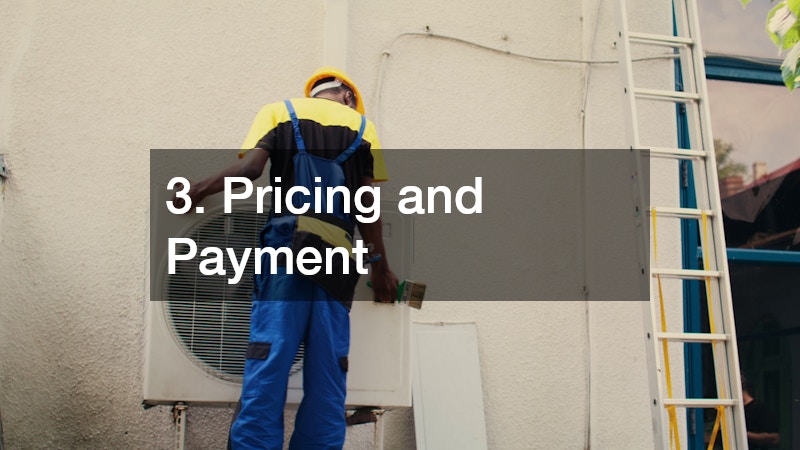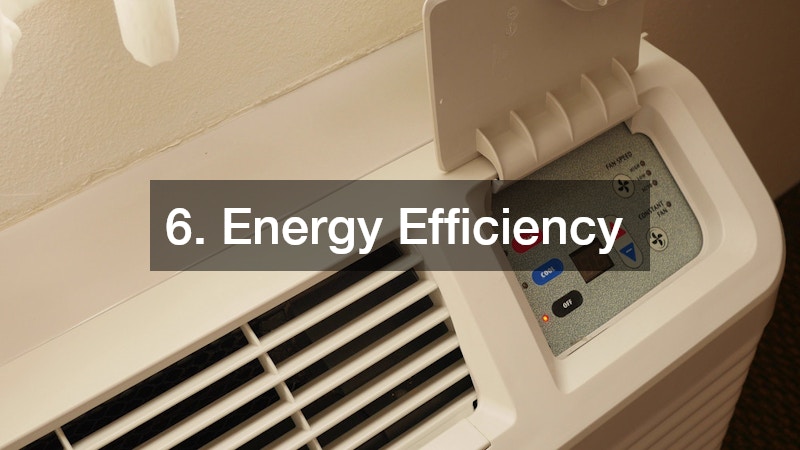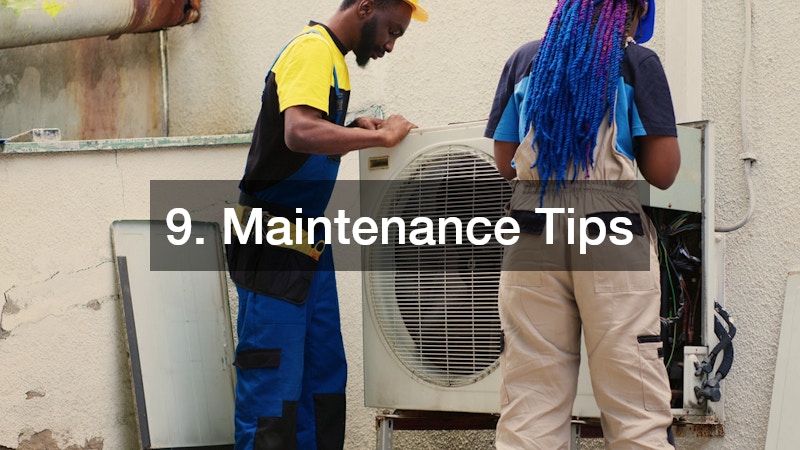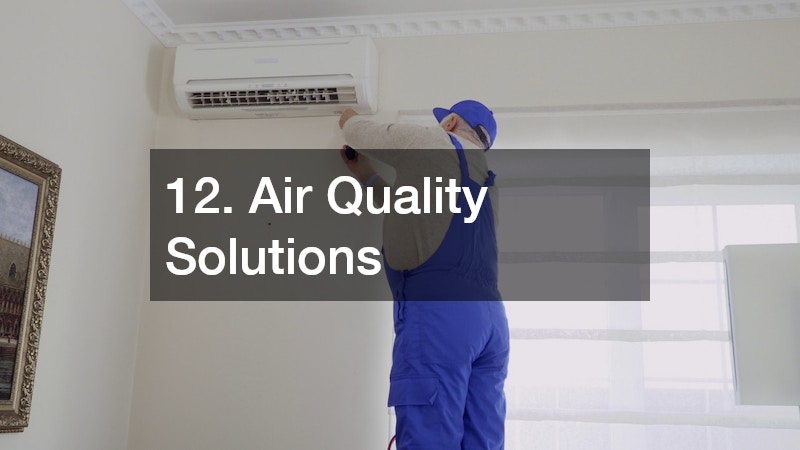When hiring a local HVAC contractor or AC company for air conditioning replacement or HVAC installations, it’s crucial to ask the right questions to ensure you’re getting the best service possible. By asking the following questions, you can make an informed decision and select a reputable HVAC technician or installer for your needs.
1. Qualifications and Experience
Before hiring an HVAC technician or installer, ask about their qualifications and experience in the industry. Inquire about the certifications they hold and how long they have been working in the HVAC field. A well-qualified and experienced HVAC technician is more likely to provide reliable services.
Make sure to ask the HVAC tech about the specific certifications they hold, such as NATE (North American Technician Excellence) or EPA (Environmental Protection Agency) certifications. Additionally, inquire about their experience working on HVAC units similar to yours to ensure they have the necessary knowledge and skills to handle your specific needs.
2. License and Insurance
Another important aspect to consider when hiring an HVAC is their licensing and insurance. Ask if they are licensed to work in your area and if they have liability insurance to protect you in case of any accidents or damages during the installation or repair process.
Verifying that the HVAC technician or installer is properly licensed ensures that they comply with local regulations and guidelines, giving you confidence in their professionalism and expertise. Additionally, having liability insurance provides you with financial protection in case of any unforeseen circumstances during the HVAC project.

3. Pricing and Payment
Before hiring an HVAC technician or installer, inquire about their pricing structure and payment options to understand the costs involved in the project. Get a detailed estimate that outlines the overall costs, including materials, labor, and any additional fees, to avoid any surprises or hidden charges.
Ask the HVAC tech about the payment options they accept, such as cash, check, credit card, or financing, to determine the most convenient method for you. Clear communication about pricing and payment terms can help you budget effectively and plan for the HVAC project accordingly.
Discuss any discounts, promotions, or financing options available with the HVAC installer to explore cost-saving opportunities and make the project more affordable. Understanding the pricing and payment details upfront can help you make an informed decision and avoid any financial challenges down the line.
4. Warranty and Guarantees
When hiring an HVAC technician for HVAC services, it’s essential to inquire about the warranty and guarantees they offer on their work. Ask if they provide a warranty on the installation or repair services and clarify the terms and duration of the warranty to ensure you’re covered in case of any issues.
Understanding the guarantees provided by the HVAC technician can give you confidence in the quality of their workmanship and the reliability of the materials used. Ensure that you have a written warranty agreement that outlines the specific coverage and any conditions or limitations that apply to the warranty.
If the HVAC technician offers any guarantees on their services, ask for details about what is included and how you can seek recourse in case of any dissatisfaction or problems with the work performed. Knowing that your HVAC project is backed by a warranty and guarantees can provide you with peace of mind and assurance of quality.
5. Services Offered
When selecting an HVAC technician for HVAC installations or repairs, it’s important to inquire about the range of services they offer to meet your specific needs. Ask about the types of HVAC services they provide, such as installation, repair, maintenance, and ductless mini split systems, to ensure they can address your requirements.
Discuss whether the HVAC tech offers maintenance plans to help you keep your HVAC units operating efficiently and prevent costly breakdowns. Regular maintenance is essential for the longevity and performance of your HVAC system, so having a service plan in place can save you time and money in the long run.
Explore the different HVAC services available from the technician or installer to determine the breadth of their expertise and capabilities. Choosing a contractor that offers a comprehensive range of services can simplify your HVAC projects and serve as a reliable partner for all your heating and cooling needs.

6. Energy Efficiency
Improving the energy efficiency of your HVAC system is not only beneficial for the environment but can also save you money on utility bills. Ask the HVAC technician or installer how you can enhance the energy efficiency of your HVAC units and what energy-saving options are available to reduce your carbon footprint and lower your energy costs.
Inquire about energy-efficient HVAC units, such as ENERGY STAR certified models, that can help you minimize energy consumption and maximize performance. The HVAC tech should be knowledgeable about the latest technologies and solutions for improving energy efficiency in heating and cooling systems.
Discuss the potential energy-saving benefits of upgrading to a more efficient HVAC system or implementing smart thermostats and zoning controls to optimize your home’s energy usage. By prioritizing energy efficiency, you can enjoy a comfortable indoor environment while reducing your environmental impact and operating expenses.
7. System Sizing
Properly sizing your HVAC system is essential to ensure optimal performance, efficiency, and comfort in your home. Ask the HVAC tech how they determine the right size HVAC system for your specific needs and what factors they consider during the sizing process to deliver a customized solution.
The HVAC tech should conduct a thorough assessment of your home’s size, layout, insulation, and other factors to calculate the heating and cooling requirements accurately. Oversized or undersized HVAC units can lead to inefficiencies, operational issues, and discomfort, so it’s crucial to work with a professional who understands the importance of system sizing.
Inquire about the load calculation methods used by the HVAC technician or installer to determine the appropriate size of the HVAC system based on your home’s unique characteristics and climate conditions. Having a properly sized HVAC system can enhance comfort, reduce energy consumption, and prolong the lifespan of your heating and cooling equipment.
8. Installation Process
Understanding the HVAC installation process is essential to ensure a smooth and successful project from start to finish. Ask the HVAC technician or installer to explain what the installation entails, including the steps involved, timeline, and any preparations required on your part to facilitate the process.
Get a detailed overview of the installation process, from equipment delivery and setup to system testing and final inspection, to have a clear understanding of the project workflow. The HVAC tech should communicate effectively and address any questions or concerns you may have about the installation to ensure transparency and professionalism.

9. Maintenance Tips
Regular maintenance is essential for the performance, efficiency, and longevity of your HVAC system. Ask the HVAC technician or installer for maintenance tips and recommendations on how you can keep your heating and cooling units in top condition between professional service visits.
Discuss the maintenance tasks that you can perform yourself, such as changing air filters, cleaning vents, and inspecting the outdoor unit, to help prevent common issues and improve system operation. The HVAC technician or installer can provide guidance on the frequency and methods for performing these maintenance tasks to ensure optimal performance.
Inquire about how often you should schedule professional maintenance services with the HVAC technician or installer to keep your system running smoothly and prolong its lifespan. Regular tune-ups and inspections can identify potential problems early and address them before they escalate into costly repairs or replacements.
10. Upgrading Options
If you’re considering upgrading your HVAC system for improved performance, efficiency, or comfort, discuss the available options with the HVAC technician or installer. Ask about the different upgrade possibilities, such as installing a more energy-efficient unit, upgrading to a smart thermostat, or adding zoning controls, to enhance your home’s heating and cooling capabilities.
Explore the benefits of upgrading your HVAC system, such as lower energy bills, improved indoor air quality, and enhanced comfort, to determine the best options for your specific needs and budget. The HVAC technician or installer can provide recommendations based on your preferences and requirements to help you make informed decisions about upgrading your system.
Inquire about any rebates, incentives, or financing options available for upgrading your HVAC system to make the project more affordable and cost-effective. Upgrading to modern, high-efficiency HVAC units can provide long-term savings and comfort benefits while reducing your environmental impact.
11. Emergency Services
Emergencies can happen at any time, and having access to reliable HVAC emergency services is crucial for maintaining comfort and safety in your home. Ask the HVAC tech if they offer emergency services and what their response times are for urgent heating and cooling issues that require immediate attention.
Ensure that the HVAC tech has a 24/7 emergency hotline or contact method for after-hours emergencies so you can get prompt assistance when needed. Knowing that you have access to emergency HVAC services can give you peace of mind and assurance that your comfort and well-being are prioritized by the contractor.
Inquire about the procedures for requesting emergency services, such as troubleshooting steps, service fees, and estimated arrival times, to prepare for unexpected heating or cooling emergencies. Working with an HVAC tech who responds quickly and efficiently to emergencies can help you handle unforeseen situations with confidence and minimal disruption.

12. Air Quality Solutions
Improving indoor air quality is essential for creating a healthy and comfortable living environment for you and your family. Ask the HVAC repair tech how you can enhance the indoor air quality in your home and what air quality solutions are available, such as air purifiers, humidifiers, or ventilation systems, to address common pollutants and allergens.
Discuss the benefits of installing air quality solutions, such as reducing airborne contaminants, controlling humidity levels, and eliminating odors, to promote better respiratory health and overall well-being. The HVAC technician should be knowledgeable about the latest technologies and products for improving indoor air quality and can recommend the best solutions for your specific needs.
13. Brand Recommendations
When selecting HVAC equipment for your home, it’s important to choose trusted and reputable brands that are known for their quality, reliability, and performance. Ask the HVAC installer if they recommend specific HVAC brands and what brands they have experience working with to ensure you’re getting reliable and durable heating and cooling units.
Inquire about the pros and cons of different HVAC brands, such as energy efficiency ratings, warranty coverage, and customer reviews, to make an informed decision about the best options for your home. The HVAC technician should be familiar with a variety of HVAC brands and can provide expert advice on selecting the right equipment based on your preferences and requirements.
Discuss any brand preferences or specifications you may have for your HVAC system with the technician or installer to ensure that they can accommodate your preferences and source the recommended brands. Working with a contractor who has experience with reputable HVAC brands can give you confidence in the quality and performance of the equipment installed in your home.
14. Customer Reviews
Before hiring an air conditioning contractor, it’s essential to research their reputation and track record by checking customer reviews and references. Ask the contractor if they can provide references or customer reviews from past projects to gain insight into their quality of work, professionalism, and customer satisfaction.
Reading customer reviews and testimonials can give you an idea of the contractor’s reliability, communication, and overall service quality based on the experiences of previous clients. Look for reviews that highlight positive experiences, timely completion, and successful installations or repairs to assess the HVAC tech’s credibility and competence.
Inquire about how customers rate the HVAC installer’s services and whether they would recommend them to friends and family to gauge their level of satisfaction and confidence in the contractor. Choosing an HVAC tech with a proven track record of happy customers can give you peace of mind and assurance that your project will be handled with the highest standards of professionalism and expertise.
In conclusion, hiring the right tech for your heating and cooling needs is essential for ensuring optimal performance, efficiency, and comfort in your home. By asking the top questions outlined in this article, you can make informed decisions and select a reputable contractor who meets your requirements and delivers quality HVAC services.
Whether you’re looking for HVAC installations, repairs, maintenance, or upgrades, it’s important to consider factors such as qualifications, licensing, pricing, warranties, and customer reviews when selecting local HVAC companies or AC companies. By prioritizing these key aspects and communicating effectively with the HVAC technician or installer, you can achieve successful outcomes and enjoy a well-functioning and efficient heating and cooling system in your home.



